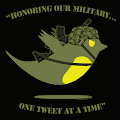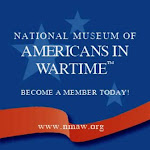This came to my attention today. It doevetailed really well with my last entry. The poet's name is Brian Turner. His book of poems, "Here, Bullet," won the 2005 Beatrice Hawley Award and was a New York Times Editor's Choice selection.
I have some more banging around in my head (yeah frightening...), but the more mundane tasks are at hand for the moment.
Night in Blue
At seven thousand feet and looking back, running lights
blacked out under the wings and America waiting,
a year of my life disappears at midnight,
the sky a deep viridian, the houselights below
small as match heads burned down to embers.
Has this year made me a better lover?
Will I understand something of hardship,
of loss, will a lover sense this
in my kiss or touch?
What do I know
of redemption or sacrifice, what will I have
to say of the dead—that it was worth it,
that any of it made sense?
I have no words to speak of war.
I never dug the graves in Talafar.
I never held the mother crying in Ramadi.
I never lifted my friend’s body
when they carried him home.
I have only the shadows under the leaves
to take with me, the quiet of the desert,
the low fog of Balad, orange groves
with ice forming on the rinds of fruit.
I have a woman crying in my ear
late at night when the stars go dim
moonlight and sand as a resonance
of the dust of bones, and nothing more.
"This might read like I wrote it on a plane headed home, or even from home (Fort Lewis, Wash.), but I actually wrote it sitting in a sand-bagged bunker on an air base southeast of Mosul. My unit had already signed over our Stryker vehicles to the incoming replacement unit. We’d even signed over our bullets. I didn’t have one round left to defend myself. Of course, I didn’t really need one — the base is well-protected and we just hunkered down in those bunkers and waited and waited and waited for our plane to take us to Kuwait, home our eventual destination.
A lot of the guys sat around playing card games, dreaming out loud about what they’d do once we made it home, or they “racked-out” (falling asleep, usually on the floor, using their assault pack as a pillow). There were occasional mortar attacks — the enemy knew we were in a “target rich” environment — but as long as we were inside, the possible threat felt very remote. We were simply bored, tired, and eager to get home.
The woman mentioned near the poem’s end is not fictional: she was the wife of a man we apprehended in Balad, near the very beginning of our deployment. I saw her crying as we put him in a truck to be taken away (R.P.G.s had been confiscated from the home, along with other military equipment). An elderly woman stood beside her, cursing us, waving the bottoms of her sandals at us (a huge insult in that part of the world), and spitting at us. As I wrote this poem inside that bunker, I already knew that specific moments would revisit me over the years, and vice versa."-Brian Turner

Easel
Nathere loads the brush with river-blue oil,
mixes it with yellow cadmium and stone
to paint a sky made of light and dust,
where ravens fly and date palms open
in a burst of green, with no trunks
painted in to hold them, the shiny fronds
drifting like epiphytes on the wind.
Nathere pauses, unsure.
There is too much heat.
Figures of people
fade into a canvas blur, mere phantasms
of paint, their features unrecoverable, their legs
disappearing beneath them as Nathere realizes—
there are no shadows to hold them down,
no slant and fall of shadow,
light’s counterpoint, the dark processing
of thought.
All burns in light here,
all rises in heat as colored tongues
lift in flame, brushstroke by brushstroke,
an erasure the sky washes out in blue.
"I wrote “Easel” in late spring of 2004, when we were part of a task force stationed north and south of Baghdad. Our job at the time was to escort and protect huge supply convoys through Baghdad. While staying at the southern fire base, I bought a painting made by a Baghdad artist. It’s now framed and hung above the desk in my office.
I come from California’s San Joaquin valley, a place that gets fairly hot in the summertime. June through August, you can drive out on any country road and often see heat waves rising off the asphalt in the distance. This painting is ironic in the sense that, in a country that is incredibly grounded in its connections to place and history, the summer heat visually lifts distant colors and shapes in a way that seems to erase those connections.
Many of the poems I wrote in Iraq, like this one, were attempts to learn about this historically and culturally rich country, as I was experiencing it."-Brian Turner









0 comments: